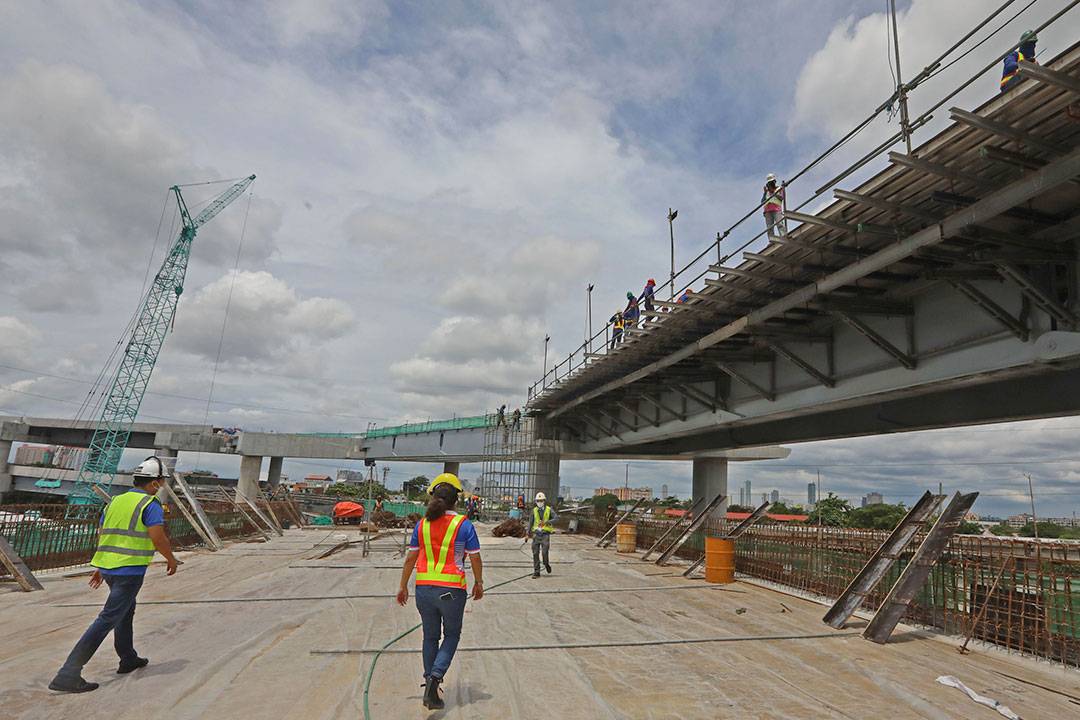
Upgrade to High-Speed Internet for only ₱1499/month!
Enjoy up to 100 Mbps fiber broadband, perfect for browsing, streaming, and gaming.
Visit Suniway.ph to learn
 PHILIPPINE STAR/EDD GUMBAN
PHILIPPINE STAR/EDD GUMBANBy Ashley Erika O. Jose, Reporter
THE proposed Right-of-Way (RoW) Office will have little to no impact in averting delays in the government’s big-ticket infrastructure projects, according to analysts.
“The Department of Public Works and Highways (DPWH) has existing capabilities in addressing and completing their road right-of-way acquisition activities and that goes for other agencies as well,” Nigel Paul C. Villarete, senior adviser on public-private partnerships at the technical advisory group Libra Konsult, Inc. said via Viber.
In March, the Private Sector Advisory Council (PSAC) recommended establishing a Right-of-Way office to streamline land acquisition and fast-track infrastructure development.
The RoW office, which will be under the Office of the President, aims to expedite RoW acquisition in the face of legal disputes, backlogs, and poor inter-agency coordination.
Rene S. Santiago, former president of the Transportation Science Society of the Philippines, said dedicated RoW office won’t make a difference given the existing capabilities within the DPWH.
The DPWH currently has a RoW acquisition and enforcement office overseeing land acquisition for infrastructure projects. It is tasked with ensuring that the rights of property owners and project-affected persons are protected.
“RoW issues are not solely due to the sluggish political will of agency heads or teams, but RoW is mostly stymied by legal proceedings on communities affected by involuntary displacement,” Terry L. Ridon, a public investment analyst and convenor of think tank InfraWatch PH, said via Viber.
Mr. Ridon said the government must establish a coordinating office for important flagship and priority projects to monitor and resolve the particular causes of delays.
Libra Konsult’s Mr. Villarete said he is not entirely against the idea, but the proposal will not result in a significant improvement in the difficulties being encountered.
“There might be a better option and that is to institutionalize DPWH’s road RoW capability to cater to other agencies as well, especially those which don’t have road RoW offices,” Mr. Villarete said.
PSAC’s proposal calls for coordination among government agencies in addressing disputes for projects involving transportation, telecommunications, water, and energy.
“Agencies differ in requirements and while DPWH is the one which requires very heavy road RoW action, others require none. Maybe another option is to expand and institutionalize this DPWH expertise and capability to assist other agencies in their requirements,” Mr. Villarete said.
The Department of Transportation (DoTr) has said that big-ticket railway projects will face major challenges in being completed by 2028 due to RoW acquisition issues.
The Department of Justice (DoJ) has issued a legal opinion that compensation rules set by development partners for persons displaced by foreign-funded projects apply only if the loan agreement was signed prior to the effectivity of the Right-of-Way Act (Republic Act No. 10752).
The opinion was issued to clarify the compensation rules governing projects entered into by the DoTr and entities like the Japan International Cooperation Agency (JICA).
JICA-funded projects must comply with a framework known as the Guidelines for Environmental and Social Consideration, which provides that: “people who must be resettled involuntarily and people whose means of livelihood will be hindered or lost must be sufficiently compensated and supported by project proponents etc. in a timely manner. Prior compensation, at full replacement cost, must be provided as much as possible.”
The DoJ said the Right-of-Way Act has its own process for acquiring RoW for national infrastructure projects, including rules for negotiated sales and payment schedules for affected property owners.
The Philippine standard for compensating landowners displaced for government projects, according to the Constitution, is fair market value instead of full replacement cost.




